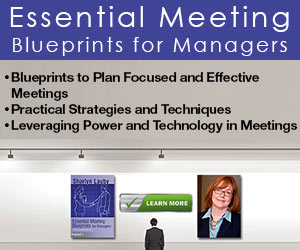Last year, I made my first attempt at writing predictions for the coming year. And, I must say I was a little nervous about it. You always want to feel you’re in touch with what’s going on and nail every prediction. Then at some point, I realized life is all about throwing curve balls.
I’ll let you guys decide how well I did with last year’s prognostications. My 
Since the sportscasters are already making their predictions for the playoffs and Super Bowl, I figure it’s not too early to publish my thoughts for next year. My predictions for 2010 revolve around simplicity. I believe people are looking for good – but good doesn’t necessarily mean lavish, expensive or intricate. It just means quality.
- Outsourcing and contract work will gain momentum. Before companies make commitments to hiring more staff, they’ll use external resources for projects. This means management teams need to understand the principles of vendor and project management. And, they need to be prepared to hold an external consultant accountable for results.
- Professional development is going to look different. We need conferences to stimulate business travel as part of our economic recovery. But what events will people attend? I believe it will be the ones that figure out how to balance the traditional conference structure with the topic timeliness of unconferences.
- Corporate training will change in the upcoming year as well. Participants will want to talk about their issues on their time. This means training agendas will need to include some free flowing discussion time. And, trainers will need to not only have good platform skills but be savvy in the art of facilitation as well.
- Time will trump money. If employees can’t have money, then the perk they will want is time. Look for this to take shape in terms of telecommuting, flextime, and possibly job sharing. Managers will need to get educated on managing a virtual workforce and building virtual teams.
- Management coaching will become a key retention tool. When the mass exodus starts (and it will), companies will have to figure out a way to show key employees they care. Giving them a coach will send a positive message to the employee regarding their future and yield significant results for the company.
- And the buzzword word for 2010 will be ‘trust.’ We all know that people buy from individuals and companies they trust. Companies will develop marketing strategies around building customer trust. Human resources will develop programs to create employee trust.
So there you have it, my forecast for 2010. Drop me your thoughts (and your own predictions) in the comments below. This year has been a real adventure for us all. Thank you so much for being here, reading the blog, and sharing your thoughts. HR Bartender is such a rewarding experience for me and it’s all because of you.
Oh and P.S. …my food prediction for next year? Well, I believe staycations have played themselves out. People want to do something but still need to economize. I’m thinking camping might make a comeback. Look for s’mores (maybe in some different gourmet varieties) to be the food buzz in 2010.
Image courtesy of doug88888







Chernee Vitello says
Good morning! Great post. Love the predictions especially about Trust. I feel this is so important and companies are not prepared that their employees are going to leave in 2010, they are underpaying them, and when the economy turns around so many will leave. Companies need to start building trust quickly.
Best –
Chernee
Puf says
Love the predicitions, I hope the word trust will be in vogue next year, but I think we’ve profitted to much without it, which makes me sad.
Steve Roesler says
Sharlyn,
Already seeing #5 as well as #4 emerging.
My take on “trust” is like “authenticity”, “transparency”, and other such words: While they may be hugely desirable, it seems that the more the terms are used, the less the reality is happening–thus, the need for discussion.
While we’re at it; My accountant wants a revenue projection for next year. Can I have him give you a shout?
Maha Akiki says
Yeay for #1!! Having worked in a Corporate Recruiter capacity on a contract basis for the past six years, I recently joined an RPO organisation. I am proof that Number 1 is alive and well. Keep ’em coming. I am a contractor with the RPO company, and the more organisations choose to go that route, the more work for me.
Oh, and #4. I work from home – in Toronto. My boss is in the US.
Maha @akiki
Margo Rose @HRMargo says
I concur with your predictions, as they resonate with everything I’ve been reading. You clearly articulate the market trends, and it’s clear your thumb has caught the draft of where the wind will blow next. In the light of our recession, and unemployment numbers shooting through the roof; companies will have to use contractors. It’s an easy out because they can no longer afford to keep people on payroll. With that said, workers have an opportunity to be self starting entrepreneurs to capitalize on this trend. There’s a huge talent pool of people in transition that can use this trend as a stepping stone to their next position. Recently, I wrote a blog post about telecommuting. According to my research 67% of employees that telecommute report that their productivity and work quality is much higher than when they work at the office; not to mention the de-motivation of working in a cube jungle.
Of all the 2010 prediction posts I’ve read via twitter thus far, you win the coveted @HRMargo award for best predictions of the year. Congratulations, you deserve the praise. I will definitely retweet this post.
Sincerely,
Margo Rose @HRMargo, twitter http://hrmargo.com
Richard Bosworth says
What if you had to build and manage a virtual workforce how would you go about it, where would you start, who would you ask and where would you find help? Any thoughts and suggestions would be most welcome as it not a question of if it one of when and the first mover advantage in this is clear.
hr bartender says
Thanks everyone for the kind words. I certainly hope I’m on target this year…it could mean added jobs, more work and new kinds of training. All good things in my book. Not to mention s’mores! Ha.Ha.
@Chernee I agree companies aren’t prepared for the turnover. Hopefully, they will see the trend before it’s too late. All of the signs are there as long as you’ve got your eyes open.
@Puf Point well taken. Trust is essential and people will demand it.
@Steve I think trust has to be more than just a word or a discussion. People need to conduct themselves in a trustful manner. (Oh, and P.S. You’re on your own with your accountant. LOL!)
@Maha Thanks for the excellent examples!
@Margo I’m honored to win the @HRMargo award for best predictions. w00t!
@Richard I think virtual teams should be managed the same way as they are in the office world. By outcomes and results. Of course, there will always be logistics like meetings, etc. that have to be addressed. The challenge in managing virtual teams is accountability. The members of the team need to hold themselves accountable as well as holding the other members of the team.
Kevin W. Grossman says
Tons of taqueria food for us on our staycations next year.
I’m digging all of your predictions, and 4, 5 and 6 have already been playing out at our firm. Flexible time is what we give in this economic dive bar and management coaching and peer coaching is what we’ve been developing over the past year.
Trust is predicated on how forthright we are with staff. Meaning we have the difficult discussions along with the “you’re such a team player” kudo strokes.
Being direct is key. Employers and employees alike have to be problem-solvers. Entitlement is a two-way street to nowheresville.
hr bartender says
Thanks for all of the comments! If you have a chance, be sure to check out tonight’s episode of HR Happy Hour. The topic is “2010: Looking Ahead” and I’ll be discussing what trends will be shaping the workforce next year. The show starts at 8 p.m. EST and the call-in number is 646.378.1086.
Visit http://www.blogtalkradio.com/steve-boese for more details.
Kris Plantrich says
I think your predictions will hold up in 2010 and especially agree “trust” will take on a new role in the new year. Employees are looking for more than a paycheck from their jobs and in their career change, they want to feel valued as part of the team and solution.
Happy Holidays!
Kris Plantrich
ResumeWonders.com
Lara Fordis says
I hope your predictions about trust and s’mores come true!
hr bartender says
Hi Lara. I hope so too! Thanks for the comment.
Matthew Harrington says
Great list HRBartendar. Many I am hearing along my travels as well. I’d like to offer the following 5 ideas from our company as well:
1. See it as a new decade, not just a New Year. Take time to envision what you want to see happening in your organization, or even your department, over the next decade and start mapping out – at a macro level – the big transformations that will need to occur. Then break it down into what can be accomplished this year.
2. Commit to continuous learning. We all acknowledge that the world is changing rapidly, with experts predicting that we’re on the edge of a whole new technology transformation coming soon. We must be vigilant about keeping our skills and competencies up to date, whether that’s by reading, taking classes, finding mentors (remember a Gen Y is a great mentor to teach you social media skills), and benchmarking what we’re doing against best practices.
3. Learn how to add value. Experts suggest that 40% of executives in key positions in organizations fail, at a cost to the organization of six times their annual salary (Training, July 2008). They fail because they haven’t learned how to add value. So many times we think the only way to add value is through our technical skills. But, in truth, there are many process skills that are tremendously beneficial to an organization: communication, planning, facilitating, prioritizing, problem solving, decision making, teambuilding, project managing and the list goes on.
4. Keep the big picture in focus. John Kotter suggests that 70% of change initiatives typically fail. Much of the reason is because leaders start to “drill down” into the details and lose the big picture and their role as change champions. Hanging onto the big picture requires seeing the organization and its future from a “systems” perspective. Rather than a left (past) to right (future) process, systems thinking works from right to left (begin with the desired outcome and work to close the gap between the future and today). Try this in an upcoming meeting by inviting the group to define the end and work backwards.
5. Speak up. Research done by the Concours Group suggests that 85% of why projects fail is due to “silence.” It begins with project sponsors who do not communicate clearly about expectations and are resistant to hearing feedback. It follows with “fact-free planning” when deliverables, budgets and timelines are set with no opportunity for input from the people who will actually do the work. When this happens, there is an 88% failure rate. Once a project starts, it can derail when team members neglect to honestly communicate project risks, delays and problems. Seventy-eight percent of these projects will go over budget and 74% will under-deliver. And, over 80% of projects are compromised by members who do not show up for meetings, fail to meet schedules, and don’t bother to respond to emails or communicate with team members.
Matt Harrington
homepage: http://www.newdirectionsconsulting.com
blog: http://www.newdirectionsconsulting.com/wordpress